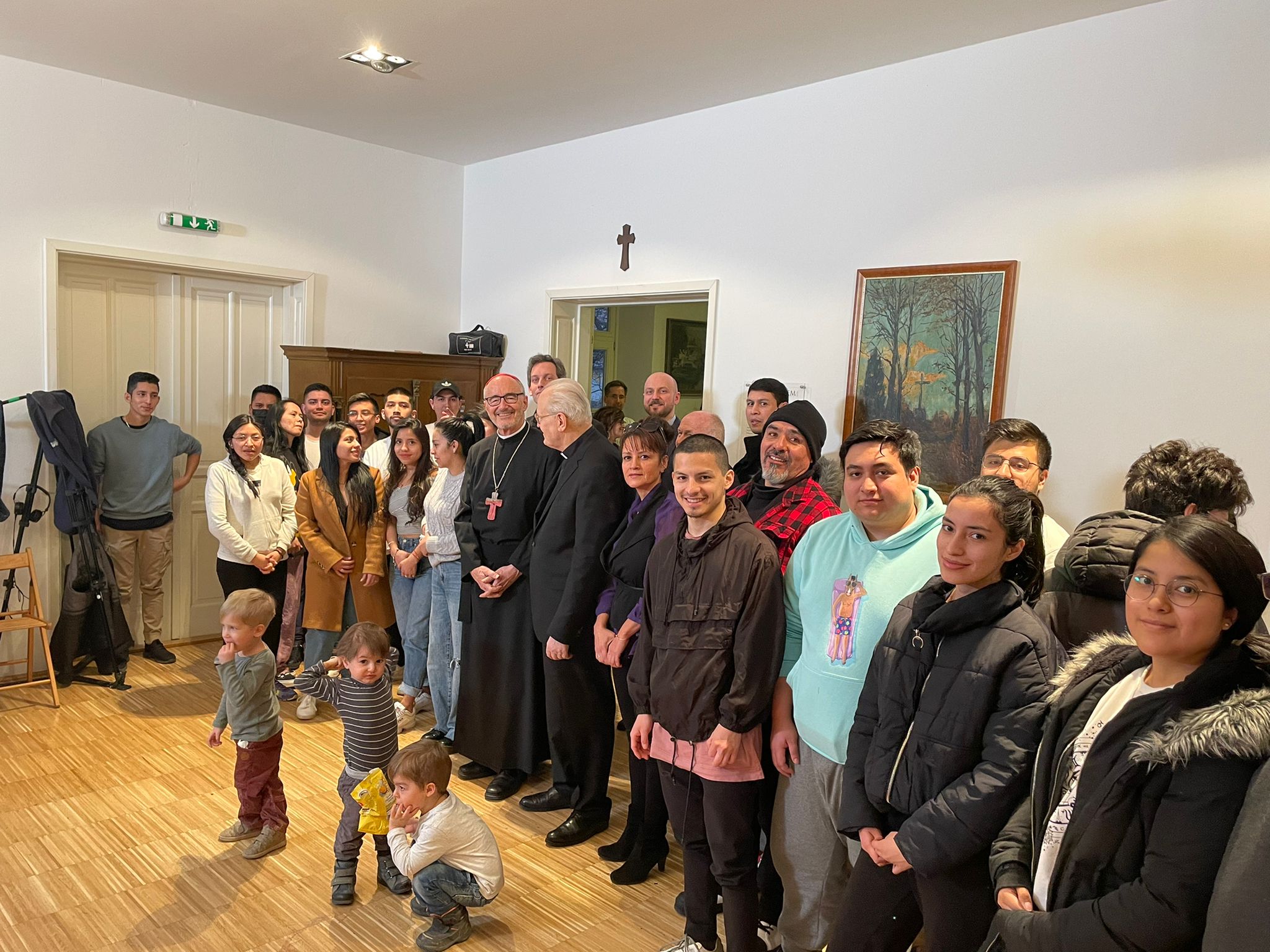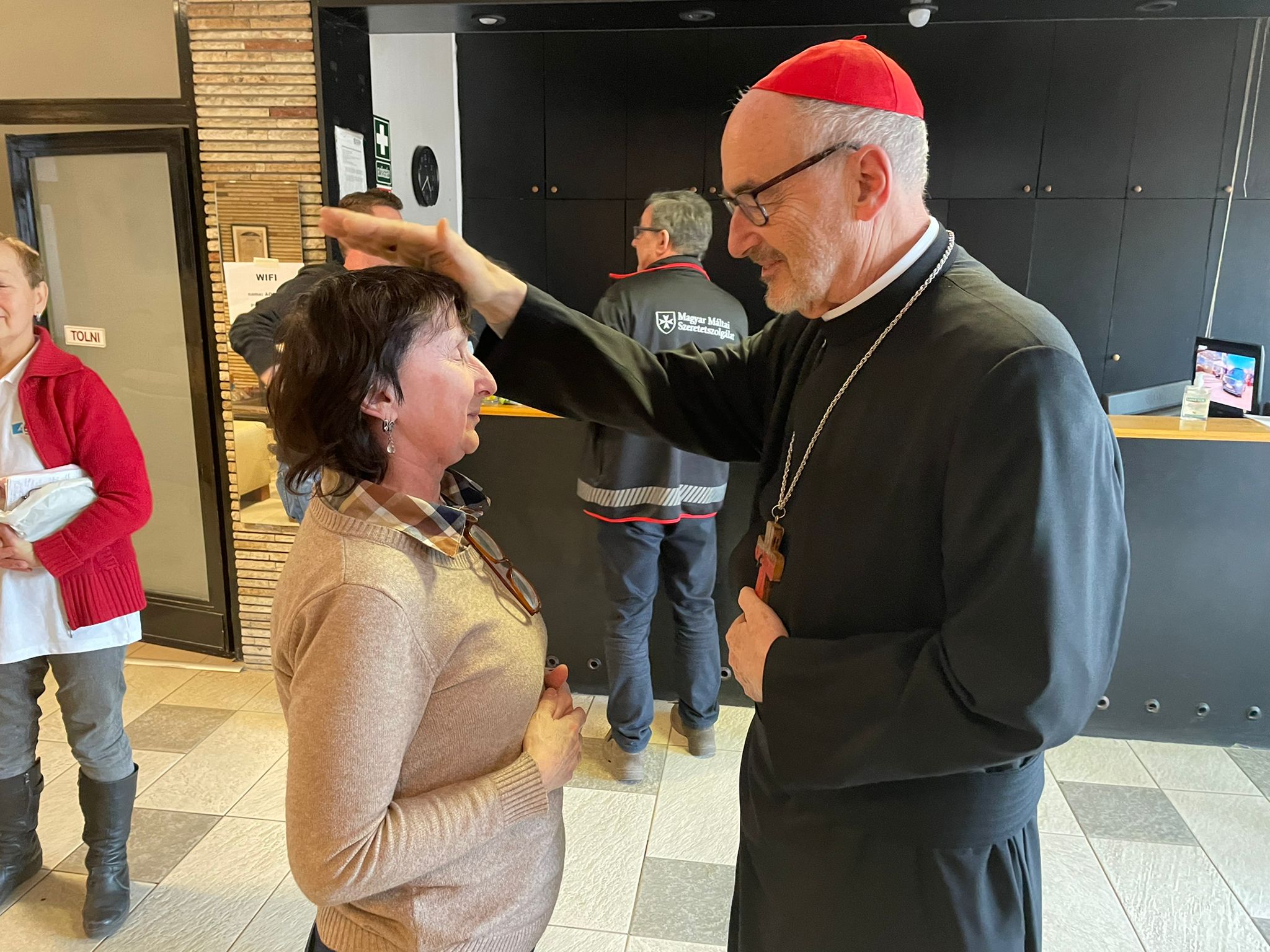- Home
- La Gregoriana
- 64 - Peace be with you all
- The Social Responsibility of the University
Share:

Universities, pontifical universities in particular,
are expected to nurture students’ awareness
of the society in which they live
and encourage their active contribution to its development.
In this regard, there is an increasing need for enhanced
interaction and collaboration between the social sciences
and other areas of ecclesiastical studies.
“The University is not an independent island; rather, it is integrated into a society with its distinctive history and challenges. The university is part of society, and as such, it carries a responsibility.” Following the lecture delivered at the Pontifical Gregorian University at the conference on the figure of Bernard Lonergan in May 2024, we met with Cardinal Michael Czerny, S.J., Prefect of the Dicastery for Promoting Integral Human Development, to discuss the role of the university as an institution immersed in a specific social context.
“During my two-year period of teaching at the Central American University of El Salvador (UCA), I remembered learning from Ignacio Ellacuría that the university possesses an inherent social vocation and responsibility. This is where students prepare to fulfil their vocation and for their future professions. At the UCA, where I taught the course on Latin American ‘realidad’ (“La realidad latinoamericana”), a philosophical reading of the socio-economic, cultural and historical context of Latin America, first taught by Ellacuría, I held the position of Vice-Rector for Social Outreach. This role complements that of the ‘traditional’ Vice-Rectors and embodies the university’s social role.
Do pontifical universities, both international and intercultural in nature, embody a social responsibility by virtue of their vocation?
“A potential risk for non-Italian students studying in Rome for extended periods is the possibility of experiencing a sense of alienation from the local environment. This is an Italian society, and the student body includes citizens from a variety of countries, including Nigeria, Korea, Bolivia and North America. However, in Rome there are also communities of people from these countries, and for a variety of reasons, including immigration, asylum and other factors. It is important to recognize that they are as much a part of the responsibility of the students who study here as the Italian citizens”.

In Kenya lei ha fondato l’African Jesuits AIDS Network (AJAN), una rete di organizzazioni per contrastare la diffusione dell’AIDS/HIV in Africa e Madagascar. Come può l’università rispondere a bisogni sociali come questo senza perdere di vista la propria missione?
«L’idea era quello di aiutare i gesuiti e le loro istituzioni a rispondere alle sfide dell’AIDS. Ma possiamo ricollegarci con quanto dicevamo prima. Se siamo un’università, una parrocchia o un collegio situati in una comunità colpita dalla piaga dell’AIDS, cosa possiamo fare? Una casa di esercizi spirituali potrebbe dire che non compete loro rispondere a questa sfida. Eppure le persone che danno la vita nella lotta contro l’AIDS hanno bisogni spirituali e di sostegno spirituale. Una casa di esercizi può allora pensare a programmi di formazione spirituale per infermieri e personale impegnato in questo campo. È un esempio per dire che ognuno risponde secondo le proprie competenze. Non dobbiamo sostituire le cliniche. Così anche l’università risponde come università».
In Kenya you founded the African Jesuits AIDS Network (AJAN), which brings together organizations working against the spread of AIDS/HIV in Africa and Madagascar. How can the university respond to such social needs without losing sight of its mission?
“The idea was to help the Jesuits and their institutions respond to the challenges of AIDS. We could refer to what we talked about earlier: what can we, a university, a parish or a college, do in a community affected by the scourge of AIDS? A retreat house might argue that it is not its place to respond to this challenge. But people who dedicate their lives to the fight against AIDS have spiritual needs, they need spiritual support. A retreat house can then offer spiritual formation programs for nurses and other staff working in this area. This is just one example that shows that each person responds according to their own competence. Our role is not to replace health clinics. Thus, the university responds in its capacity as a university.”
Today’s academic curricula attach great importance to inter- and trans- disciplinarity. To what extent do the social sciences interact successfully with other traditional subjects in the academic curricula of the pontifical universities?
“Modern social consciousness dates back less than two centuries in the history of the Church. It must be said that disciplines like philosophy and theology take time to recognize and integrate other equally valid ways of understanding reality. At the same time, it should be noted that the social sciences are still young and, having developed in a climate of sometimes aggressive anticlericalism, have not always succeeded in entering into dialogue with the more reflective and theological dimensions of the human person. These are limitations on both sides. But if one recognizes one’s own limitations, they can be addressed together in a collaborative spirit.”
Is this still imperfect relationship between the social sciences and the classical disciplines reflected in the life of the Church?
“While most people are aware of the need to prepare the faithful for confirmation, it is less obvious that it is also necessary to prepare the faithful for society. This is a pity and a mistake. We cannot be good Christians, nor can we be good citizens, if we close ourselves off from society. We tend to see society as a given, something we find ourselves in, but isn’t the opposite also true? Society is a human construction for which we are collectively responsible. Unfortunately, the education we receive doesn’t always help us assume the necessary responsibility for the society in which we live.”
You have been a student and teacher in Montreal, Chicago, San Salvador and Nairobi. In what way does the social environment contribute to the formation of this awareness?
“It makes no difference where I am, whether I am in San Salvador or in Rome: I don’t feel less responsible in Chicago because it’s wealthier than Nairobi. Quite the opposite. In fact, when you enjoy the advantages of an ‘elite’ educational background, you have an even greater responsibility. Today we suffer from a huge democratic deficit and all our alumni have a great responsibility in this area. Unless this is addressed, many other issues will remain unresolved.”
In a recent lecture at the Gregoriana, you quoted Bernard Lonergan and recalled the priority of “communication” or “pastoral life” of the Church. What do you mean by this?
“In essence, the challenge facing the Church can be summed up in a single word: “inculturation”. Pope Francis has done much to help us understand that inculturation is not a minor adaptation of external elements to fit the cultural milieu, but rather a radical process of incarnating the Gospel within every context.
It is my belief, as a bishop, that in this major challenge we are struggling with, the bishops should be able to rely on the Catholic universities, notably the Gregorian University. Because the faith has been present in Italy for twenty centuries, we assume that it is enculturated. That’s not true. My impression is that the Gospel is barely incarnated in the contemporary culture, which is neither classical, nor that of the Renaissance period, nor the culture reflected in books. Thus, the challenge - whether in Rome, in Chicago, in San Salvador, in Nairobi - remains the same, albeit different each time.
I’m afraid that enculturation has been mistaken for a trivial matter, or ignored by convincing ourselves that - after all – it’s our own culture that is relevant. On the contrary, it is the other person’s culture that is relevant. This is why we have a section in the Dicastery dedicated to listening: it is necessary to recognize the vast variety of contexts and realities in which the Word of God and the life of the Church are realized.”

How is this focus on attentive listening to local realities, to the particular Churches, translated into the structure and activity of the Dicastery for Integral Human Development? What fruits has it borne?
“Listening - Dialogue, Research - Reflection and Communication – Restitution are the guiding principles of the three sections that make up the Dicastery. The underlying idea is to serve the local Churches through a process of dialogue.
The first section is dedicated to listening to the needs, questions and problems of the local Churches.
The second part involves research and reflection with the aim of identifying tools for gaining new insights and developing “good practices”.
Finally, the task of the third section is to ensure that these practices are transferred back to the local churches, leaving it to them to implement them in a creative and situation-specific way.”

